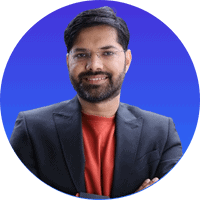Kellogg Executive MBA Application Essays 2023-24
There will be two essay questions included on the application and provide an opportunity for you to share more about your background and values so the admissions committee can get to know you on a more personal level. In your own words, you’ll be able to tell us your story and what you want to achieve in your post-Kellogg life. Professional or personal examples for your essays are welcome.
Question 1 (450 words)
Kellogg Leaders are primed to tackle today’s pressing concerns everywhere, from the boardroom to their neighborhoods. Tell us about a time in your life where you’ve needed a combination of skills to solve a problem or overcome a challenge. Which skills did you use? What did you accomplish?
Question 2 (450 words)
At Kellogg, our values are based on research that concludes organizations comprised of leaders with varied backgrounds and perspectives outperform homogeneous ones. How do you believe your personal and professional experiences to date will help to enrich the Kellogg community?
If needed, you can submit a third essay to briefly describe any extenuating circumstances (e.g. unexplained gaps in work experience, choice of recommenders, inconsistent or questionable academic performance, etc.).
Quick Essay Review
Worried if your Essay is Good enough or Not?
Need a last-minute review?
Submit your essays below & get in-depth feedback within 48 Hours.

Kellogg Executive MBA Letter of Recommendation Questions 2023-24
Two Letters of Recommendation from peers and/or supervisors who know you well — preferably one from your current organization and one from a customer, supplier or previous employer.
Recommenders should submit their letters via email directly to our EMBA office via Mail: emba(at)whu.edu
Kellogg asks for two letters of recommendation. We’ve found that this gives us greater insight into who you are as an employee and a leader. One letter should come from your current supervisor or manager. The second letter should come from someone who can evaluate your professional performance and your managerial/leadership potential (e.g., former supervisor, previous employer, client). Additional letters of support are neither required nor encouraged.
All letters should be submitted via the online application. They must address the following questions:
1) Kellogg has a diverse student body and values students who are inclusive and encouraging of others with differing perspectives and backgrounds. Please tell us about a time when you witnessed the candidate living these values. (300 words)
2) How does the candidate’s performance compare to those of other well-qualified individuals in similar roles? Please provide specific examples. (300 words)
3) Describe the most important piece of constructive feedback you have given the candidate. Please detail the circumstances and the applicant’s response. (250 words)
4) Is there anything else you would like us to know?
Please note: As long as your online application is submitted by the posted deadline, recommenders may submit their letters up to two weeks after the application deadline. Keep in mind that formal application review cannot begin until all required materials have been received.
Step-by-Step Guide
To Writing Great Letter of Recommendations

